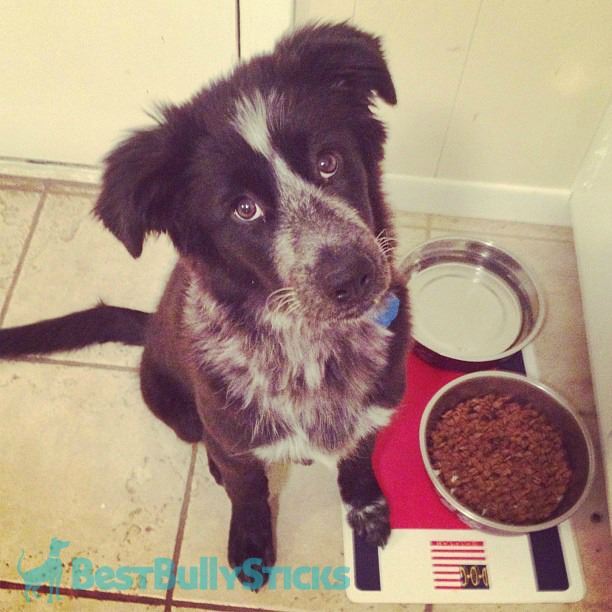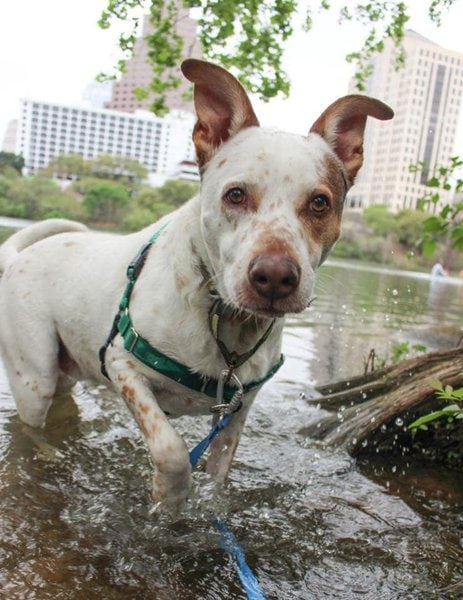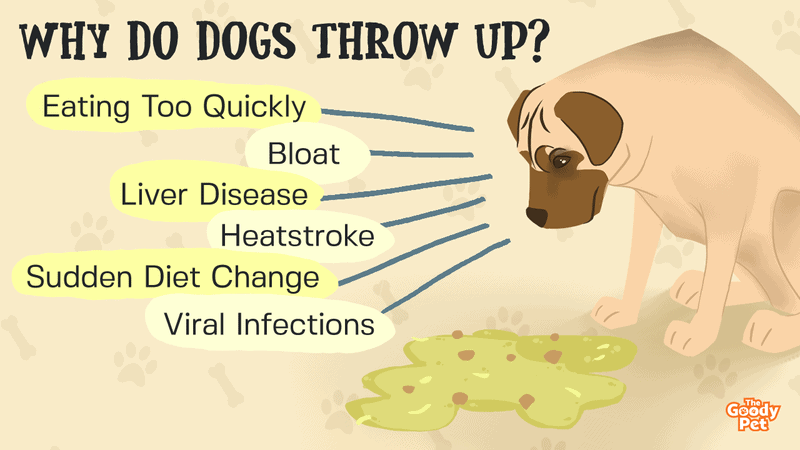Dogs vomit for many different reasons. Even the healthiest of dogs can find themselves vomiting. So as a dog owner who prioritizes their dog’s health, what could cause your dog to vomit?
Dogs vomit when they eat too much or eat something that does not agree with their stomachs. These causes are typically no cause for worry, however, in other causes vomiting could mean that you dog can be gravely ill. Health conditions that cause dogs to vomit include bloat, pancreatitis, and liver disease.
Vomiting is uncomfortable for your dog and learning the different reasons why dog vomit can spare you from worrying when there is no cause for it, and it can help you to get the appropriate treatment for your dog. Hence, we have compiled an extensive list of reasons why your dog could be vomiting.
34. Pancreatitis

Pancreatitis is the inflammation of the dog’s pancreas and can be life-threatening. When a dog has Pancreatitis, the enzymes released by the pancreas causes inflammation and damages the organs and tissue that surround it.
The common symptoms of Pancreatitis are diarrhea, decreased appetite, abdominal pain, frequent vomiting, and dehydration. If you notice that your dog has these symptoms, you should take them to your veterinarian as soon as you can.
The sooner your dog is diagnosed and treated, the better its chances of survival will be.
33. Bloat

Bloat is a fatal condition that results from air or food filling your dog’s stomach and causing it to twist. Bloat can make it difficult for your dog to breathe and lead them to enter a state of shock.
Symptoms of Bloat include drooling, vomiting, swollen stomach, and restlessness. If you notice these symptoms and suspect that your dog may be affected by Bloat, you should immediately get them medical attention.
32. Liver Disease

Liver disease is when the liver no longer works effectively. This disease is caught through contaminated food and water, and feces of infected animals. Other causes of liver disease include diabetes, liver cancer, or trauma.
Genetics has proven to be a factor in some breeds such as Golden Retrievers. Symptoms include diarrhea, frequent urination, and vomiting. In severe cases, seizures, blindness, and bloody urine/feces occur.
When you take your dog to the vet, they will prescribe antibacterial/biotic medication or surgery.
31. Heatstroke

Heatstroke is a life-threatening condition that occurs when the heat overwhelms your dog’s body. When your dog experiences heatstroke, they will be unable to cool their body temperature through panting.
Aside from vomiting, other symptoms of heatstroke include drowsiness, lethargy, heavy panting, drooling, and collapsing. When it is hot, you should regularly check on your dog to ensure that they are not experiencing heatstroke
Once you notice that your dog is experiencing heatstroke, you should immediately lower your dog’s body temperature. This should be done gradually by moving them to a shaded area, using a wet towel, and slowly feeding them some water.
30. Sudden Diet Change

Sudden diet changes can cause your dog to experience an adverse reaction to their new diet and cause them to vomit. Adverse food reactions include any food intolerance, such as allergies and gastrointestinal intolerance.
When planning to change your dog’s diet, you should do so gradually. According to the American Kennel Club, you should introduce their new diet in small quantities while maintaining their current diet, so that your dog can adjust accordingly.
29. Eating Too Quickly

When dogs eat too quickly, they tend to swallow air along with their food. As their stomachs are suddenly filled with lots of food and air, they expand.
This expansion causes your dog to vomit. A more serious concern is that eating too quickly can lead to a fatal condition called Bloat. Your dog may be eating quickly because of a medical condition such as intestinal parasites or as a side effect of medication that increases appetite.
28. Adverse Reaction to Medication

Medication that is given to dogs orally generally results in upset stomachs and vomiting. Pain medication and antibiotics are notorious for causing dogs to experience an adverse reaction.
Some dogs are more susceptible to an adverse reaction to the medication, these breeds include Retrievers, Bulldogs, and German Shepherds
27. Viral Infections

There is a long list of viral infections that can cause your dog to vomit. Common viral infections include parasites, Salmonella, and Canine Distemper. Viral infections such as Canine Distemper are highly contagious.
Viral infections are caused by virus particles that linger in the air and infect dogs. Several viral diseases cause dogs to vomit. The treatment for viral infections depends on the specific infection.
26. Stomach Cancer

Dog breeds such as the Chow Chow, Rough Collie, and Belgian Shepherd Dogs are more susceptible to developing stomach cancer than other breeds. Stomach cancer does not show clear-cut symptoms until it has developed significantly.
Even though the exact cause behind stomach cancer is still unknown, some factors are said to contribute to the development of stomach cancer. These factors include breed, age, and gender.
The most common symptom of stomach cancer is vomiting while other symptoms are whining, weight loss, decreased activity, heavy panting, and unusually frequent urinating.
25. Urinary Tract Infection

Urinary tract infections (UTI) in dogs are commonly caused by bacteria that colonize the urinary tract. Escherichia coli is responsible for most bacterial UTIs in dogs. UTI’s are the most common type of infection in dogs and female canines are most susceptible to it.
Dogs with compromised immune systems are more susceptible to bacterial infections. Signs of a UTI include vomiting, frequent and uncontrolled urinating, discolored urine, and fevers.
An untreated UTI can develop into a more serious condition such as bladder stones, infertility, and kidney failure. Therefore, if you suspect that your dog may have a UTI, you should take them to the vet to be prescribed some antibiotics.
24. Motion Sickness

The ear structure that is used for balance is not fully developed in puppies. This structure gradually develops as puppies get older. Their undeveloped ear structures make puppies susceptible to motion sickness.
Whining, vomiting, yawning, and uneasiness are common signs of motion sickness. The first few car rides that you take your puppy on will be filled with them being uneasy, but fortunately, most puppies outgrow their motion sickness.
23. Poisoning

Often, dogs consume things that are not obvious to us, dog owners, as toxins. Food items such as chocolate, avocado, onions, and alcohol are toxic to dogs. If you leave chocolate lying around and your dog eats it, they will have an adverse reaction to it.
Signs of toxin and poison in dogs include agitation, vomiting, loss of consciousness, skin irritation, and diarrhea. If your dog has ingested toxins or poison, you should take them to the veterinarian to be treated as soon as possible.
22. Food Allergies

If your dog is allergic to certain food items their immune system will see that food item as a threat and react adversely to it and cause them to vomit. The most effective way to treat your dog’s food allergy is by changing their diet.
You should aim to include food items that your dog is not allergic to. Although your dog may be specifically allergic to certain food items, dogs are generally allergic to dairy products, soy, wheat gluten, and eggs.
21. Consuming Grass

Most of us have had to deal with our dogs eating grass and subsequently vomiting. Dogs eat grass for several reasons, such as boredom, instinct, curiosity, stomach pains, and stress.
When dogs eat grass, they are not too worried about what they may consume along with the grass. Your dog would consume little animal droppings, which could cause your dog to develop intestinal parasites.
To get your dog to stop consuming grass you should distract them by playing with them, buy them a chewy toy that will cure their boredom, or take them to the veterinarian for their potential stomach pains.
20. Streptococcus Bacterial Infection

When your dog’s immune system is weakened, bacteria infect them and cause them to be ill. This usually happens to puppies who have not fully developed their immune systems, and old dogs who have compromised immune systems.
Aside from causing your dog to vomit, Streptococcus can result in symptoms such as abscesses on your dog’s skin, coughing, painful urination, and abrasions. Treatment for this bacterial infection depends on the location of the infection.
However, antibiotics are commonly used to combat most bacterial infections.
19. Gastrointestinal Ulcers

Gastrointestinal Ulcers, more commonly known as Stomach ulcers, are lesions and sores that form within the lining of the dog’s stomach. There are several causes of Gastrointestinal ulcers.
If this condition remains untreated, in some extreme cases, it could lead to anemia or death. Symptoms of Gastrointestinal ulcers are loss of appetite, diarrhea, chronic vomiting, and abdominal pain.
18. Kidney Disease

The causes of kidney disease include heatstroke, snake bites, dental disease from bacteria build-up. When the kidney’s functionality is impaired, your dog’s health will suffer a domino effect.
Symptoms of kidney disease will include vomiting, bloody urine, decreased physical activity, and sudden weight loss. The treatment for kidney disease includes medication, diet changes, and fluid therapy by using an IV.
17. Meningitis

Meningitis causes your dog’s central nervous system(meninges) to become inflamed leading to severe pain. Meningitis is caused by factors such as exposure to chemical toxins, bacterial and fungal infections.
This disease is common in large dog breeds aged 4 to 24 months, infected dogs will exhibit symptoms like fever, vomiting, and hypersensitive to touch. More severe cases can lead to blindness, paralysis, and seizures.
Once diagnosed, the vet will give your dog antibiotic treatments or prescribe medication to reduce the inflammation and swelling.
16. Parvovirus

Parvovirus is a highly contagious canine virus. It can be transmitted when your dog comes in contact with an infected dog, or an object or person that has been contaminated.
Parvovirus does the most damage to the stomach and intestines. Therefore, it is not surprising that infected dogs vomit frequently. Other symptoms of Parvovirus are anorexia, fever, bloody feces, and dehydration.
15. Head Trauma

Head traumas most commonly lead to concussions. If your dog has a concussion, you will notice that they would be experiencing symptoms such as imbalance, vomiting, differently sized pupils, and seizures.
You should immediately seek medical attention for your dog when they suffer head trauma. Head traumas can quickly escalate and in the worst-case scenario, your dog could die.
14. Physical Activity Directly After Eating

Just like us, dogs should avoid undergoing strenuous physical activity directly after eating because they have not digested their food. If your dog undergoes strenuous physical activity directly after eating, they will most likely vomit their undigested meal.
After your dog eats, you should allow them to rest for at least 30 minutes before allowing them to play and run around.
13. Canine Brain Tumor

Brain tumors are malignant growth that originates from the tissue within the brain. The cause of canine brain tumors is still unknown. However, factors such as genetics, trauma, and diet may influence the development of brain tumors.
Tremors, unusual hair growth or loss, vomiting, head tilt, and neck pains are common symptoms of brain tumors in dogs. If the tumor is accessible by surgeons and has not grown excessively, your dog could recover through surgical means.
If the tumor is inaccessible, your dog will not be cured but their life can be extended by a few months through radiation therapy.
12. Diabetes Mellitus

Diabetes mellitus is the absence of insulin or the resistance of it by the body. It is commonly caused by pancreatitis, obesity, and genetics. Some breeds like Poodles are prone to inheriting it. Diabetic dogs will frequently urinate urine that is dark in color.
Weight loss despite frequent eating and frequent vomiting are key signs to look for before taking your dog to see the vet. Once there, they will examine, stabilize glucose levels via insulin injections and change their diet and exercise routines.
11. Pica

Pica is the consumption of foreign objects. These objects have no nutritional value and could harm them or cause vomiting. Boredom, stress, and diabetes may cause exaggerated appetite leading to your dog consuming anything nearby.
If your dog consumes things like socks, rocks, and sticks there are ways to make them stop. Giving more attention may help cure boredom and anxiety however for diabetes take them to the vet where they will prescribe medication to balance glucose levels.
10. Colitis

Colitis in dogs is when the large intestine or colon becomes inflamed, causing severe pain. Colitis is commonly caused by the consumption of inedible objects.
Other causes include allergy to food or medication, stress, intestinal/colon infections. Colitis leads to symptoms like bloody or loose stools, vomiting, and weight loss. Low fiber diets are a great way to treat Colitis.
However, if it is severe then the vet will prescribe antimicrobial medication.
9. Megaesophagus

Megaesophagus is when the esophagus cannot move boule into the stomach. The esophagus is dilated so food and water are easily regurgitated and can be inhaled into the lungs resulting in pneumonia.
Causes include congenital or the formation of an abnormal blood vessel in the esophagus. This leads to vomiting and a painful bulge in the neck that makes it difficult for your dog to eat or swallow.
Refusal to eat leads to weight loss so if any of these symptoms are noticed contact your vet for treatment.
8. Middle Ear Problem

Middle ear infections occur when untreated outer ear infections spread further into the canal. The causes of infections include mites, yeast, or fungi however, food and environmental allergies are factors.
The symptoms include pungent-smelling ears caused by yeast, vomiting, inflamed ears. If the infection is severe you will need to take your dog to the nearest vet.
They will examine the ear and prescribe either antiparasitic, antibiotic, or antifungal medications as treatment.
7. Stress, Anxiety, And Excitement

Under stress and anxiety, dogs feel uneasy or edgy and get excited or hyperactive. Triggers, in our homes, include loud sounds/noise and constant guests. Symptoms they may exhibit include lack of appetite, fatigue, and vomiting.
Removing or reducing some of these triggers is the key to helping manage your dog’s anxiety. Other forms of treatment include patiently training your dog to better react to such circumstances.
6. Acid Reflux

Acid reflux is when digestive acids overflow into the esophagus causing severe pain. Some causes include obesity and inefficient esophageal sphincter, which blocks acid from reaching the esophagus.
Because of the pain, your dog may be hungry but refuse to eat or struggle to swallow. Other symptoms include weight loss and vomiting.
If your dog exhibits these symptoms, you should take them to the nearest vet where they will be given antacids like ranitidine and famotidine to lower the acid level in the stomach.
5. Kennel Cough

Kennel cough is a highly contagious respiratory disease that affects dogs with weak immune systems. Puppies and older dogs are most at risk for being contaminated along with dogs with existing respiratory diseases.
The causes include influenza-like bacteria that infect the lungs and can eventually lead to pneumonia. Other symptoms include persistent dry coughs, fever, vomiting, and nasal discharge.
Depending on the severity, good rest and hydration will help your dog recover however severe cases will include an antibiotic prescription and a cough syrup.
4. Constipation

When your dog is constipated and unable to pass normal stool, it may experience vomiting as a side effect. Constipation can be caused by various reasons, which include dehydration, stress, diet, and age.
Depending on the cause and whether your dog has been constipated for only a day or two, you can use home remedies to cure their constipation and end their vomiting. The appropriate home remedies are hydration, pumpkin, and exercise.
3. Intestinal Parasites

Dogs get intestinal parasites by ingesting the parasite or its eggs from contaminated food or water. They spread these parasites through their feces or puppies are contaminated through their mother’s milk.
Dogs are carriers even with no signs of infection. Symptoms include bloody stool, diarrhea, vomiting, and inability to gain weight. In severe cases, dogs should get treatment like fecal exams, anti-parasitic, and antibiotic medications.
2. Addison’s Disease

If your dog suffers from a deficiency of hormones produced by their adrenal glands, then your dog has Addison’s Disease. If not treated, Addison’s Disease can lead to death.
This deficiency occurs when the adrenal glands are unable to produce sufficient hormones as a result of a compromised immune system. Symptoms of Addison’s Disease include vomiting, depression, diarrhea, and weight loss.
The treatment for Addison’s disease includes taking medication for the rest of your dog’s life.
1. Consumption Of Contaminated Water

Dogs can contract diseases like leptospirosis or salmonella from drinking contaminated water. These diseases can be fatal if not carefully monitored so check if your dog exhibits abdominal pain, diarrhea, refusal to eat, vomiting, and fatigue.
Fevers and depression can follow, which can be fatal. You should take your dog to the nearest vet if you suspect, it may be infected with a water-borne disease.
Related Questions
When Should You Be Concerned About Your Dog Throwing Up? You should be concerned about your dog throwing up when they throw up continuously for a period longer than a day. In this case, you should take your dog to the veterinarian for an accurate diagnosis, as it may be suffering from a medical condition that you may not be fully aware of.
Should I Give My Dog Water After Vomiting? Yes, you should provide your dog water right after they have vomited to prevent dehydration. However, you should allow your dog’s stomach a grace of 2 hours to recover, before giving them some food.
How Do You Settle A Dog’s Stomach After Vomiting? Firstly, you should not give your dog any food for at least 8 to 12 hours. Once you have allowed that grace period, you should feed your dog an easily digestible meal such as boiled chicken and white rice.





